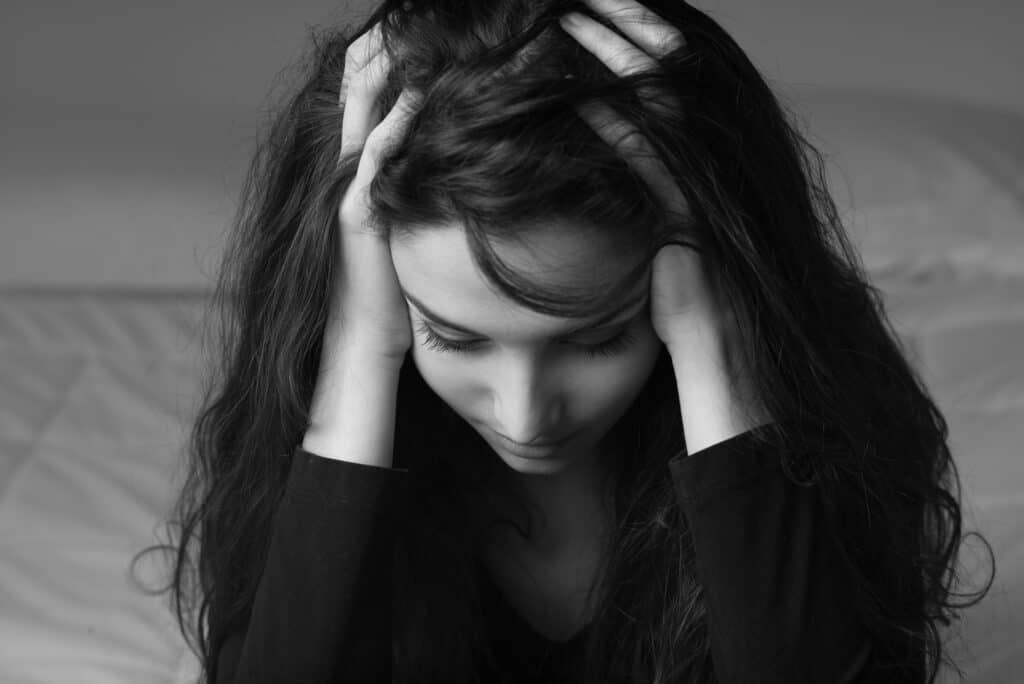Anxiety is often portrayed as an overwhelming sense of nervousness, agitation, or worry. While these symptoms are incredibly common, there are many other physical and emotional ramifications of anxiety that can have a substantial impact on your day-to-day life. One such consequence that many people overlook is fatigue. Feeling tired all the time, even after a full night’s sleep, can be a direct result of anxiety.
Why Does Anxiety Cause Fatigue?
To understand why anxiety makes you tired, it’s important to recognize the full scale at which anxiety operates in your body. When you are anxious, your brain and body are in a constant state of heightened alertness—this “fight or flight” response is thoroughly exhausting. Here are several ways anxiety can drain your energy:
Psychological Stress
When you’re anxious, your brain is working overtime. You may find yourself racing through a myriad of thoughts, concerns, and hypothetical scenarios, all of which demand a significant amount of mental energy. This persistent cognitive strain can lead to mental fatigue, making it difficult for you to concentrate or feel motivated.
Physical Manifestations
Anxiety doesn’t just affect your mind; it has a very tangible impact on your body. Common physical symptoms include muscle tension, headaches, stomach issues, and increased heart rate. These symptoms can sap your energy and leave you feeling drained. Additionally, the physical manifestations of anxiety can disrupt your sleep patterns, further contributing to your feelings of exhaustion.
Hormonal Imbalances
Chronic anxiety can alter the balance of hormones in your body. Cortisol, often known as the stress hormone, can remain elevated if you are consistently anxious. High levels of cortisol can disrupt your sleep, balance your blood sugar poorly, and lead to a state of chronic fatigue.
Sleep Disturbances
Anxiety is well-known to interfere with your ability to get restful sleep. Whether it’s difficulty falling asleep, staying asleep, or experiencing restless nights filled with vivid dreams and nightmares, inadequate sleep can leave you feeling perpetually exhausted.
Recognizing the Symptoms
Identifying anxiety-induced fatigue can be particularly challenging. Fatigue can be attributed to many factors. Here are some common signs that anxiety may be the root cause of your tiredness:
- Restlessness: Despite feeling exhausted, you might find it hard to relax or sit still.
- Irritability: Persistent tiredness can make you more prone to irritability and mood swings.
- Increased Worry: If your fatigue is coupled with constant worrying, it could be a sign that anxiety is the underlying issue.
- Physical Symptoms: Lingering muscle tension, headaches, or stomach issues that coincide with your fatigue may indicate that anxiety is to blame.
Coping Strategies
Dealing with anxiety-induced fatigue can be challenging, but there are actionable steps you can take to alleviate both your anxiety and the exhaustion that comes with it.
Mindfulness and Relaxation Techniques
Mindfulness practices such as meditation, yoga, and deep-breathing exercises can help reduce anxiety symptoms and thus, the fatigue associated with them. These techniques are valuable for calming your mind and helping you achieve better sleep.
Physical Activity
Exercise is an excellent way to manage anxiety and boost your energy levels. Regular physical activity can reduce levels of cortisol and increase endorphins, known as the “feel-good” hormones, which can significantly alleviate symptoms of both anxiety and fatigue.
Healthy Lifestyle Choices
Maintaining a balanced diet, staying hydrated, and avoiding excessive caffeine and alcohol can improve your overall well-being. Nutritious foods fuel your body and help stabilize your mood and energy levels.
Seek Professional Help
When self-help strategies are not enough, it might be time to seek professional assistance. A mental health professional can offer therapy, such as cognitive-behavioral therapy (CBT), which is particularly effective in treating anxiety disorders.
Medication
In some cases, medication may be necessary to manage anxiety symptoms. Anti-anxiety medications and antidepressants can alleviate both anxiety and its associated fatigue. It is essential to consult with a healthcare professional to determine the best course of action for your individual needs.
Anxiety Making You Tired All The Time
Experiencing anxiety-induced fatigue can be a vicious cycle. Anxiety leads to tiredness, which in turn can make you more anxious, and the loop continues. However, breaking this cycle is possible with the right strategies and support. It’s essential to listen to your body and recognize when anxiety is taking a toll on your energy levels.
At Resilience Behavioral Health, we understand the profound impact that anxiety and its symptoms, including fatigue, can have on your life. Our team of dedicated professionals is committed to providing comprehensive and compassionate care to help you manage your anxiety symptoms and improve your overall quality of life.
Find Professional Help With Anxiety Treatment in Massachusetts
If you’re in Massachusetts and struggling with anxiety and fatigue, know that you don’t have to face this battle alone. At Resilience Behavioral Health, we offer a range of mental health treatment programs designed to help you regain control of your life. Our expert team is here to support you every step of the way. Contact us today to learn more about how we can help you achieve mental wellness and resilience.
Reach out to Resilience Behavioral Health and start your journey towards better mental health. Your well-being is our priority, and together, we can build a brighter, more energetic future for you.


